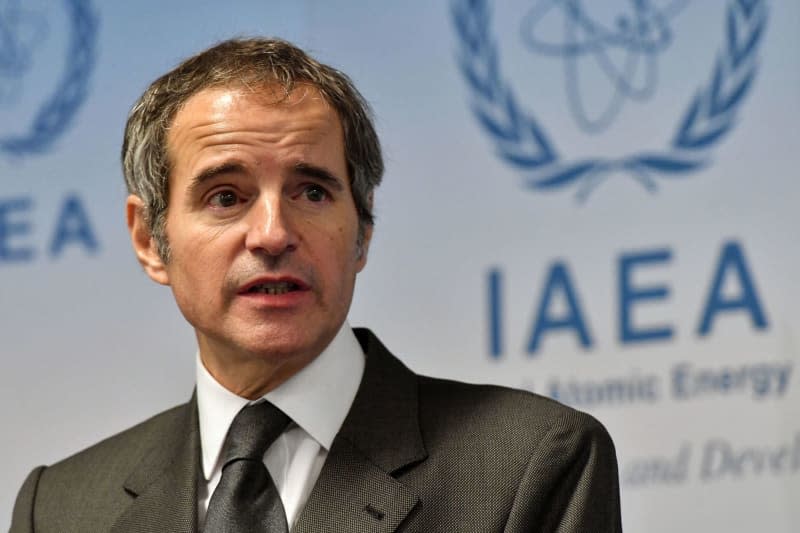Iran's nuclear chief says IAEA boss will travel to Tehran for talks

- Oops!Something went wrong.Please try again later.
The head of the International Atomic Energy Agency (IAEA), Rafael Grossi, will shortly be travelling to Tehran to resume nuclear talks with the Iranian side, a top Iranian official said on Wednesday.
"We have good cooperation with the IAEA and the IAEA chief will also come to Tehran soon to continue the bilateral talks and update them, so to speak," Iran's nuclear boss Mohammad Eslami said, according to the Iranian news agency IRNA.
Grossi said in an interview with CNN on Tuesday that he was "considering" visiting Tehran.
"I don't have a date; otherwise, I would tell you," he said.
Grossi has long been trying to get answers from Iran about secret nuclear activities in the past, and told the broadcaster there were still some important information gaps.
Following the failure of the 2015 international nuclear agreement, which was intended to prevent Tehran from developing nuclear weapons, Iran has failed to fulfil its technical obligations under the deal in recent years.
A particular cause for concern is the enrichment of uranium to 60%, despite Iran being allowed allowed up to just 4% in the agreement.
Tehran says the country is technically capable of increasing the enrichment process to 90%. This would then also make it possible to build a nuclear bomb. However, the Iranian leadership maintains that the construction of weapons of mass destruction is not on the country's military agenda.
Iran's nuclear programme has repeatedly led to tensions between the Islamic Republic and Western countries as well as Iran's arch-enemy Israel. Experts consider Iran's peaceful utilization of almost weapons-grade uranium to be implausible. There are also said to be unresolved nuclear projects and secret nuclear facilities to which Iran does not grant the IAEA access.

